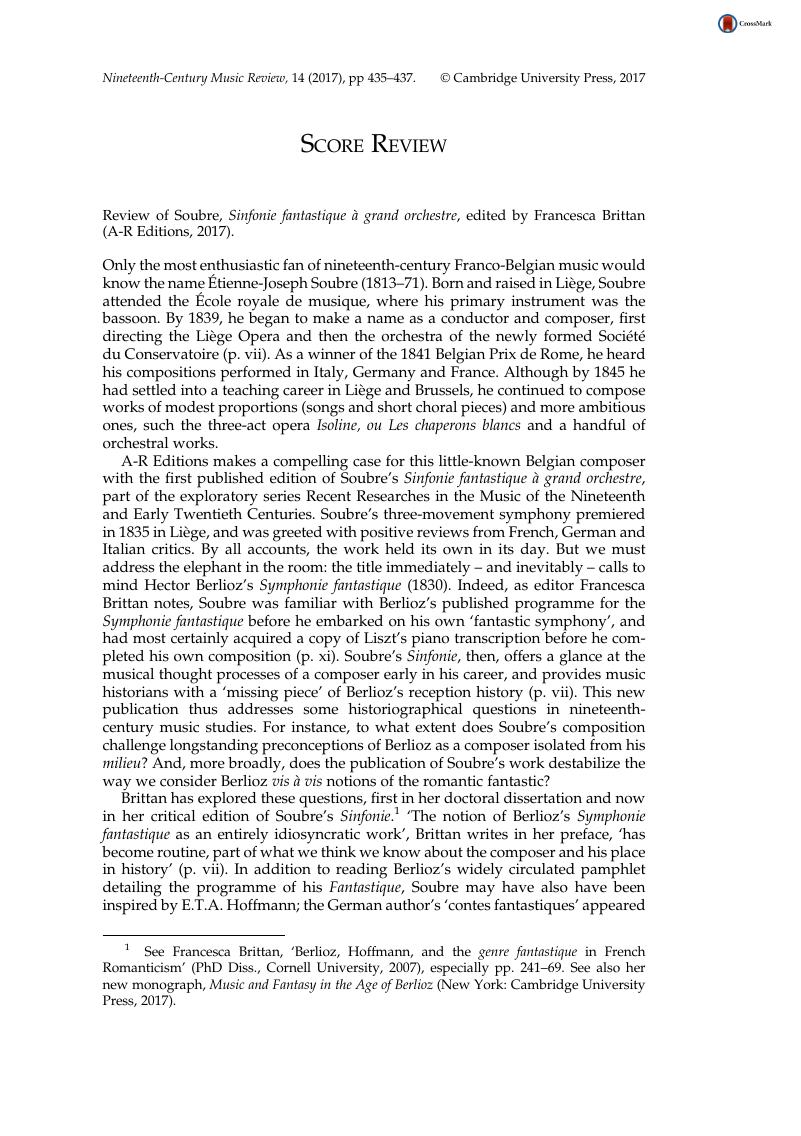No CrossRef data available.
Published online by Cambridge University Press: 15 November 2017

1 See Francesca Brittan, ‘Berlioz, Hoffmann, and the genre fantastique in French Romanticism’ (PhD Diss., Cornell University, 2007), especially pp. 241–69. See also her new monograph, Music and Fantasy in the Age of Berlioz (New York: Cambridge University Press, 2017).
2 On the role of the ‘fantastic’ in literary thought, see Brittan, Francesca, ‘Berlioz and the Pathological Fantastic: Melancholy, Monomania, and Romantic Autobiography’, 19 th -Century Music 29/3 (Spring, 2006): 211–239 Google Scholar; and Ritchey, Marianna, ‘Echoes of the Guillotine: Berlioz and the French Fantastic’, 19 th -Century Music 34/2 (Fall, 2010): 168–185 Google Scholar.
3 This subject has been the source of recent musicological work on the relations between French romanticism, neurology, and philosophies of materiality. See, for instance, Raz, Carmel, ‘“The Expressive Organ Within Us”: Ether, Ethereality, and Early Romantic Ideas about Music and the Nerves’, 19 th -Century Music 38/2 (Fall, 2014): 115–144 Google Scholar.
4 See de Chateaubriand, François-René, Atala/René, trans. Irving Putter (Berkeley: University of California Press, 1952)CrossRefGoogle Scholar, and de Musset, Alfred, The Confession of a Child of the Century, trans. David Coward (New York: Penguin Classics, 2013)Google Scholar.